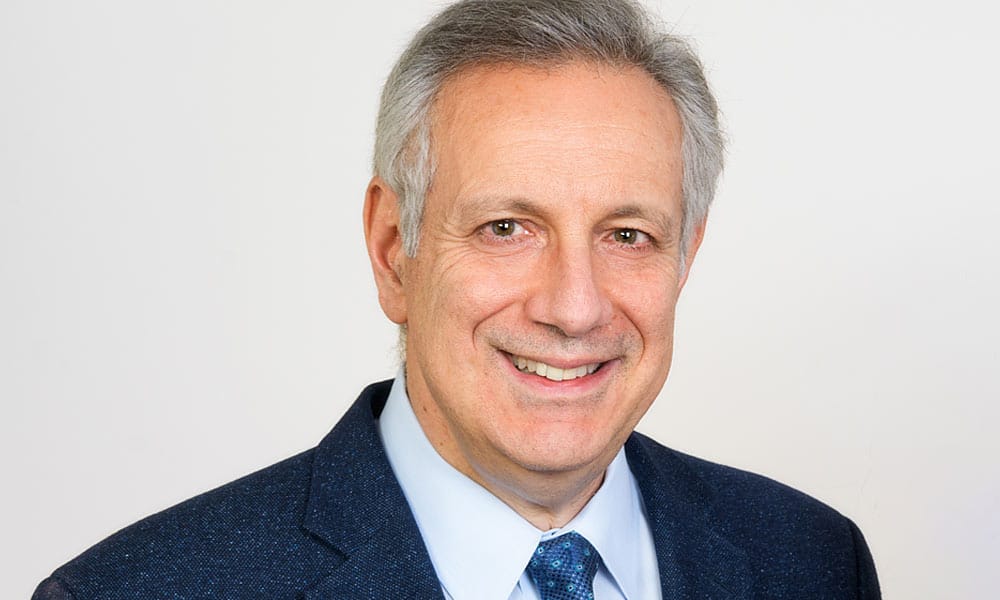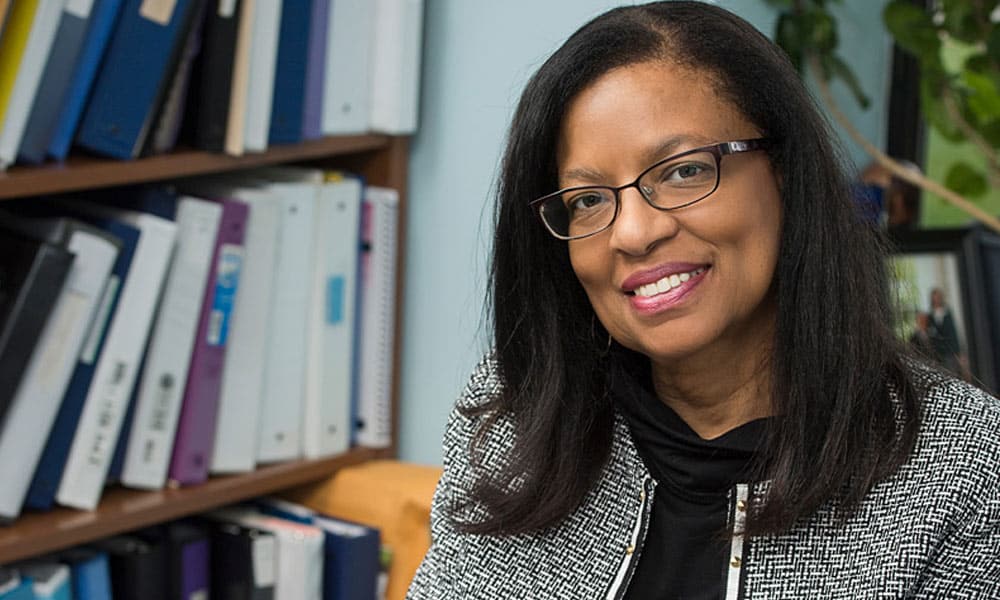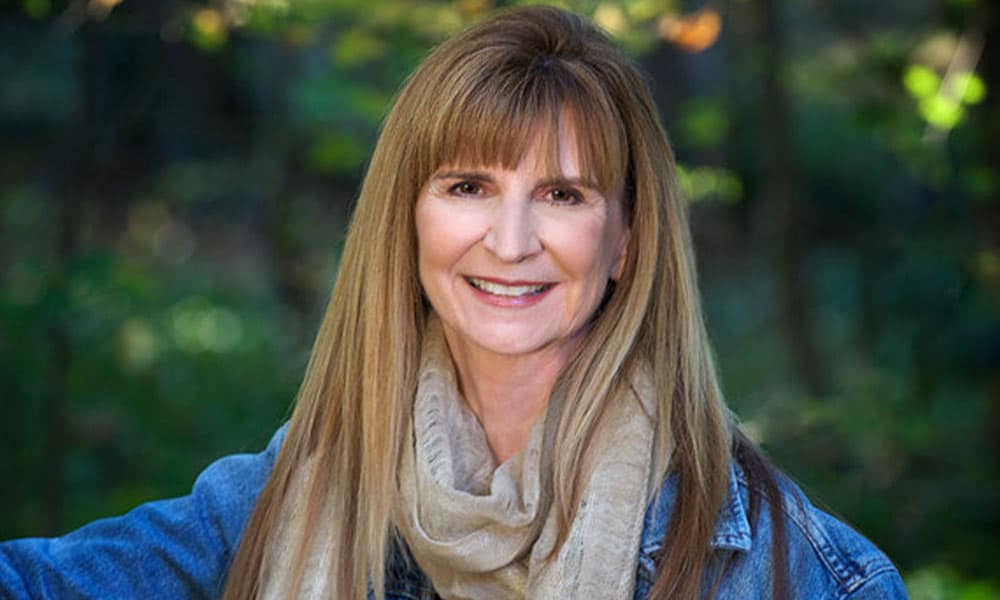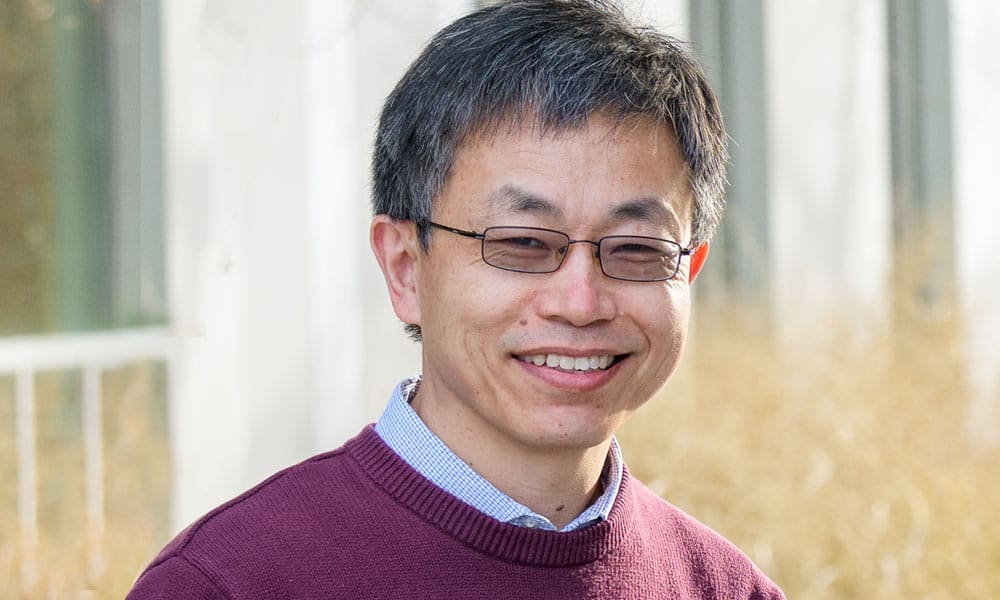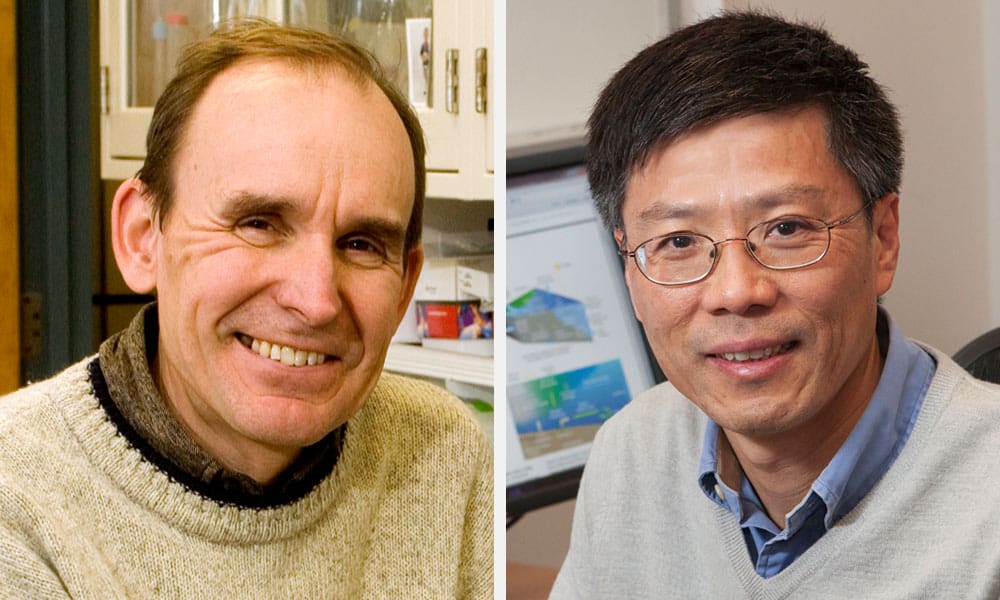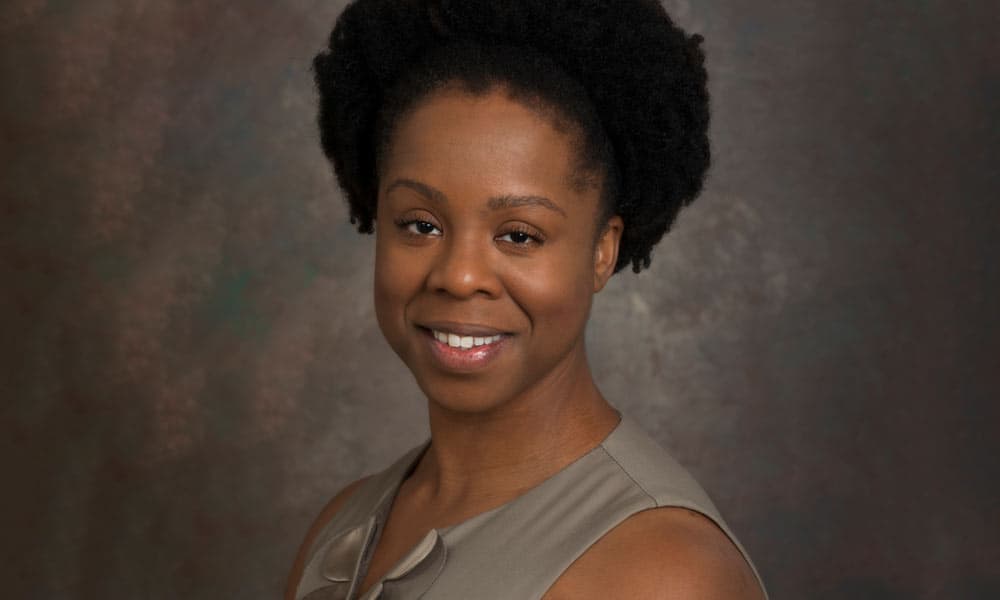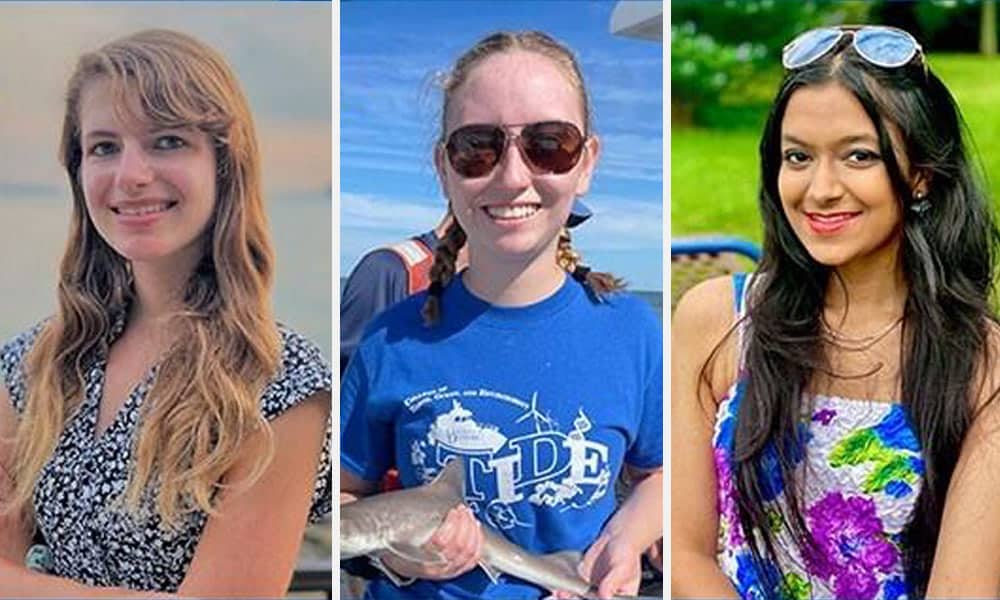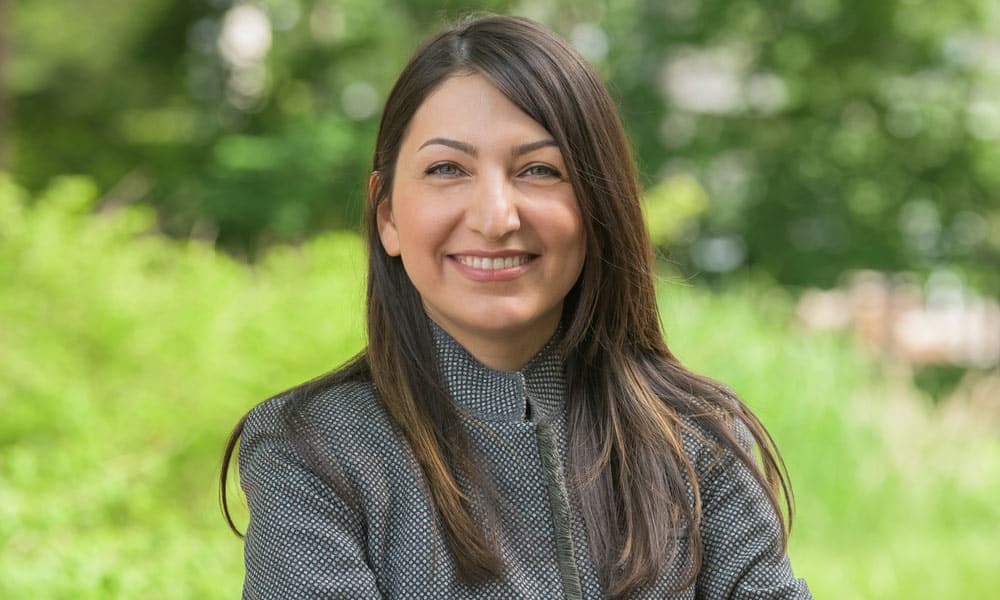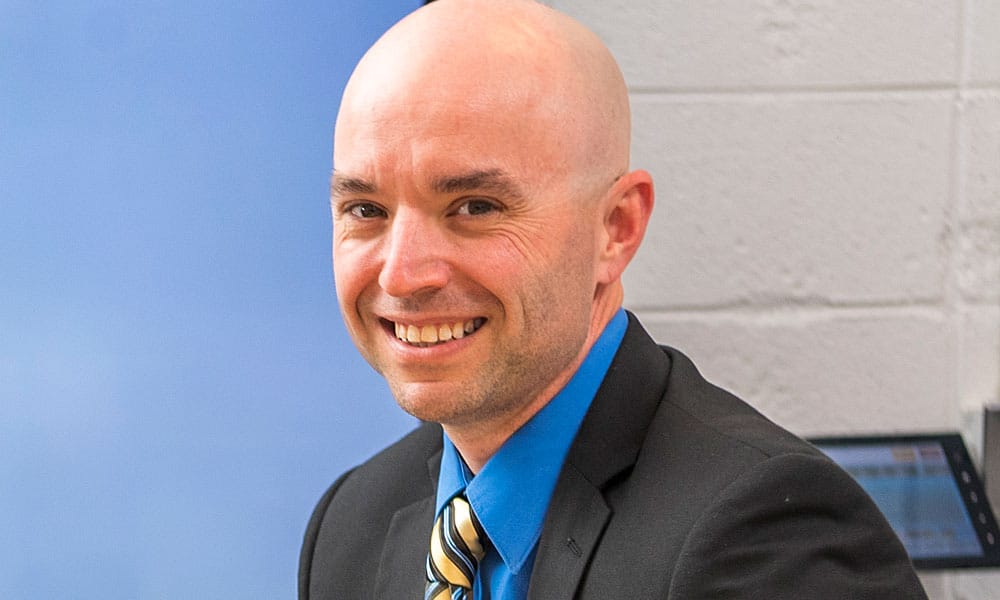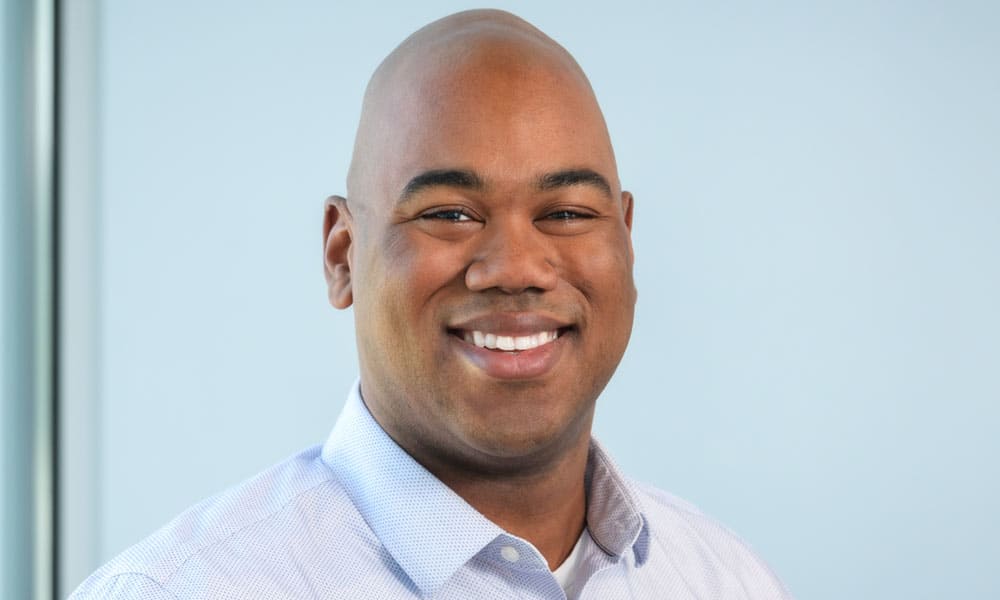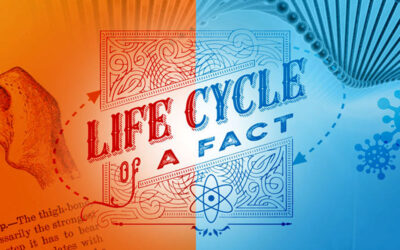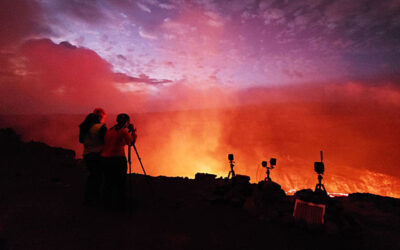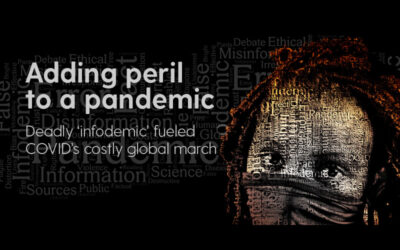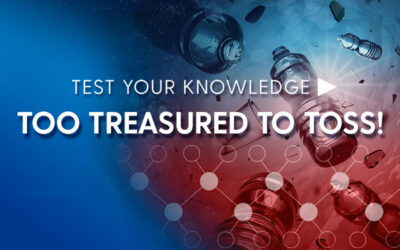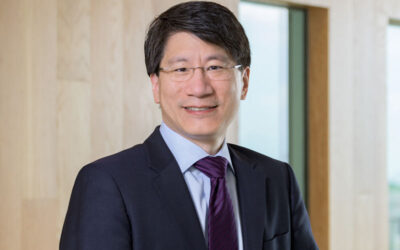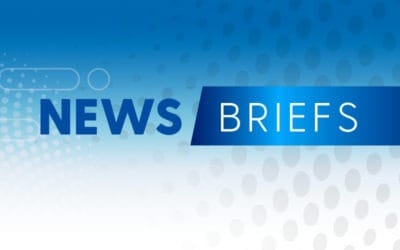
- Assanis named to National Advisory Group on Science and Technology
- Overby appointed to National Council On The Humanities
- Jordan elected to National Academy of Education
- Yan elected to National Academy of Engineering
- Marine Scientists NAMED AAAS Fellows
- Gallant Awarded Prestigious Rome Prize
- Three win Goldwater Scholarships
- Three receive NSF CAREER Awards
Biden names UD President Assanis to national advisory group on science and technology
University of Delaware President Dennis Assanis has been named by President Joe Biden to serve on the President’s Council of Advisors on Science and Technology (PCAST), a select group of the nation’s most distinguished leaders in these areas. PCAST is the sole body of external advisors charged with making science, technology and innovation policy recommendations to the president and the White House to provide informed perspectives on issues affecting the economy, worker empowerment, education, energy, the environment, public health, national security, racial equity and more.
Assanis, who has served as president of UD since 2016, is a highly regarded expert in clean energy and power systems. Among his many honors, he was elected to the National Academy of Engineering in 2008 for his “scientific contributions to improving fuel economy and reducing emissions of internal combustion engines, and for promoting automotive engineering education.” In 2019, he was named to the National Commission on Innovation and Competitiveness Frontiers, an initiative of the nonpartisan Council on Competitiveness.
Overby appointed to National Council on the Humanities
A national advocate for arts education, Lynnette Overby fell in love with dance when she was 12, went on to earn a Ph.D. in kinesiology, founded the dance minor at UD and has created groundbreaking performances in the U.S. and South Africa. She has a deep commitment to forging community partnerships and has served as director of UD’s Community Engagement Initiative since 2020.
Recently, Overby, professor of theatre at UD, was appointed to the National Council on the Humanities, an advisory board to the chair of the National Endowment for the Humanities. President Biden nominated Overby for the role, which was confirmed by the U.S. Senate. NEH supports research and learning in history, literature, philosophy and other areas.
Nancy Jordan elected to National Academy of Education
Nancy C. Jordan, the Dean Family Endowed Chair of Education and professor in UD’s College of Education and Human Development, helps young students develop early number sense and an understanding of fractions through research grounded in the science of how children learn. Working with colleagues at UD and other universities, she has not only identified predictors of mathematical growth and achievement, but translated her findings into practical, evidence-based curricula, interventions and assessments for elementary and middle school teachers.
In recognition of her contributions to special education and math learning research, Jordan has been elected to the National Academy of Education, which advances high-quality education research and its use in policy and practice. Jordan is one of 17 national and international scholars elected to NAEd membership this year and the second faculty member from UD to receive this honor.
Yushan Yan elected to National Academy of Engineering
Y ushan Yan, an expert in electrochemical engineering for sustainability, has been elected to the National Academy of Engineering. He is the ninth current faculty member from the UD College of Engineering to receive this recognition, which he earned for “creativity, innovation and entrepreneurship in separation membranes and electrochemical reaction engineering, catalysis and materials.”
Yan and his group’s focus on fuel-cell technology ultimately led to a new family of polymers that can be used in fuel cells, green hydrogen generation and carbon capture. One of his latest projects involves using a novel electrochemical system powered by hydrogen that can capture 99% of carbon dioxide from air.
David Kirchman (left) and Wei-Jun Cai
School of Marine Science and Policy, College of Earth, Ocean and Environment
Marine scientists elected AAAS Fellows
Wei-Jun Cai and David Kirchman have been elected fellows of the American Association for the Advancement of Science, the world’s largest general scientific society and the publisher of the Science family of journals.
Both professors are on the faculty of the School of Marine Science and Policy in UD’s College of Earth, Ocean and Environment. Cai, the Mary A.S. Lighthipe Chair in Marine Science, was recognized “for distinguished contributions for understanding the global carbon cycle and CO2 fluxes in the coastal ocean,” and Kirchman, the Maxwell P. and Mildred H. Harrington Professor of Marine Studies, was lauded “for outstanding contributions to marine biosciences, particularly microbial ecology and microbial oceanography.”
Denva Gallant awarded Rome Prize
Denva Gallant, assistant professor of art history, has received the prestigious Rome Prize, awarded by the American Academy in Rome — America’s oldest overseas center for independent studies in advanced research in the arts and humanities. Of more than 900 applicants for the 2022–23 prize, Gallant was among 38 American scholars chosen.
A specialist in European medieval art and architecture, Gallant plans to work on her current book project, Illustrating the Vitae partum: The Rise of the Eremitic Ideal in Fourteenth-Century Italy, which examines an illuminated manuscript, Vitae partum (New York, Pierpont Morgan Library, MS.M.626). That book, written and decorated in Naples during the 14th century, recounts the lives of a group known as the Desert Fathers and Mothers, men and women from the Middle East who withdrew from their families and society in the fourth century to live in the desert as a sacrifice to God and a test of their faith.
Three win prestigious Goldwater Scholarships
Rebecca Beswick, Renea Briner and Ishika Govil received the Goldwater Scholarship, one of the most prestigious awards in the natural sciences, engineering and math in the U.S. Eligible students must have a grade point average of at least 3.8, substantial research experience and plan to pursue a doctoral-level research career.
Beswick, a rising senior studying chemical engineering, has her sights set on a career in electrochemical research at a national laboratory. Briner, a rising senior Honors student with a double major in marine science and psychology with a minor in Spanish, is aiming for a marine science career. And Govel, a rising senior double-majoring in chemical engineering and computer science, is intrigued by computational synthetic biology and a potential research career in industry or academia.
They are among only 417 Goldwater Scholars who were selected from 1,242 nominees nationally. Only 19 institutions had more than three Goldwater Scholars this year, which speaks to the impressive caliber of students who attend UD.
Three receive National Science Foundation CAREER awards
Lena Mashayekhy to improve data-driven decision-making for Internet of Things
As the so-called “Internet of Things” — from smart watches to autonomous vehicles — keeps expanding, artificial intelligence and analytics can play an important role in swiftly processing the vast amounts of data that drive decision-making across these technologies.
“As we or these devices move, our connection to those computational resources will change, but the devices should not experience any interruptions,” said Lena Mashayekhy, assistant professor of computer science in UD’s College of Engineering. “I’m planning to explore how to deal with mobility challenges proactively and provide stable computing services.”
For her forward-looking work, Mashayekhy has been selected to receive the National Science Foundation’s Faculty Early Career Development award (NSF CAREER), which includes $671,835 in funding over the next five years.
Teo Paoletti to help students develop reasoning skills with digital tools
Unlike other elementary and middle school mathematics courses, algebra begins to introduce abstract relationships and ideas. For students who struggle with these concepts, the challenges of algebra can have long-term economic and social impacts, as it often serves as a gatekeeper for future math coursework and STEM careers. How can K-12 educators support their students in developing this critical algebraic knowledge?
Teo Paoletti, assistant professor in UD’s School of Education, thinks the answer might lie in helping students develop “covariational reasoning” or the ability to reason about relationships as quantities change together.
In support of his novel approach to teaching and learning algebra, the National Science Foundation has awarded Paoletti a nearly $885,000 NSF CAREER award. During the next five years, through the Covariational and Algebraic Reasoning Project: A New Path to Algebra (Project CARe), Paoletti will create and test digital instructional tasks designed to support middle schoolers’ covariational reasoning using a free educational technology platform. He hopes to integrate education and research to create a new path into learning algebra for middle school students.
Kevin Solomon to develop next-gen gene editing tools
Kevin Solomon, assistant professor in UD’s Department of Chemical and Biomolecular Engineering, was recently awarded about $1.1 million in funding from the National Science Foundation’s Faculty Early Career Development (CAREER) program to improve modern-day gene editing tools.
“The genomes of bacteria and other cells are simply a collection of genes (like words) made up of individual nucleotides (genetic alphabet),” he said. “We want to develop technology that allows us to edit genomes or rewrite specific letters of that message to cure diseases or make economical biofuels without having to rewrite the whole page.”
The award will support five years of research and a new educational program, in partnership with Purdue University. By working with undergraduate students at both universities and potentially also with African citizens attending a unique graduate program at Purdue, the research could have international impact.
MORE STORIES
Life Cycle of a Fact
Is there any such thing as a fact? Who and what can we trust these days? Here’s the method to stem the madness.
True Adventures
Kīlauea volcano offered up an incredible spectacle while UD doctoral student Abigail Nalesnik was there doing fieldwork.
Adding Peril to a Pandemic
As our world continues its struggle against the COVID-19 pandemic, another global threat has proven tougher to arrest, just as lethal and likely to be a key factor in crises to come.
Getting the Message Right
It’s a problem almost as old as time: You think your words are clear, but your audience seems to hear something different than you intended—or worse, they don’t really hear you at all.
What Happens When Communication is Blocked?
Professor Isaí Jess Muñoz has produced an award-winning recording of the music of a once-repressed region of Spain.
Test Your Knowledge
How much plastic is around us and how can we stem the plastics pollution problem? Take the quiz!
Research Leadership Announced
Kelvin Lee has been appointed interim vice president for research, scholarship and innovation at UD.
News Briefs
Did you know the world’s longest-operating solar research institute is at UD? Or that some old books could be poisonous? Tap into our recent discoveries and leadership appointments.


